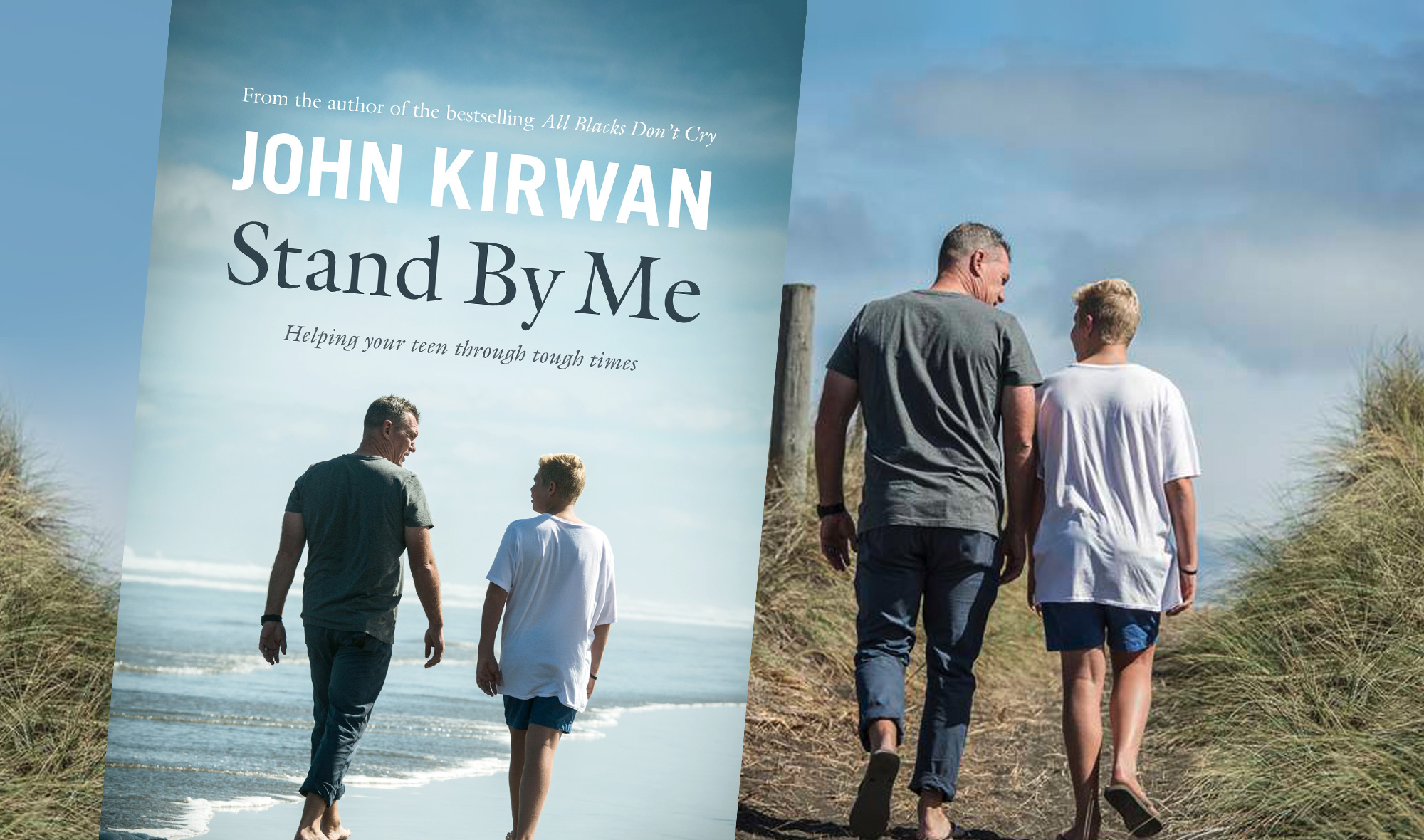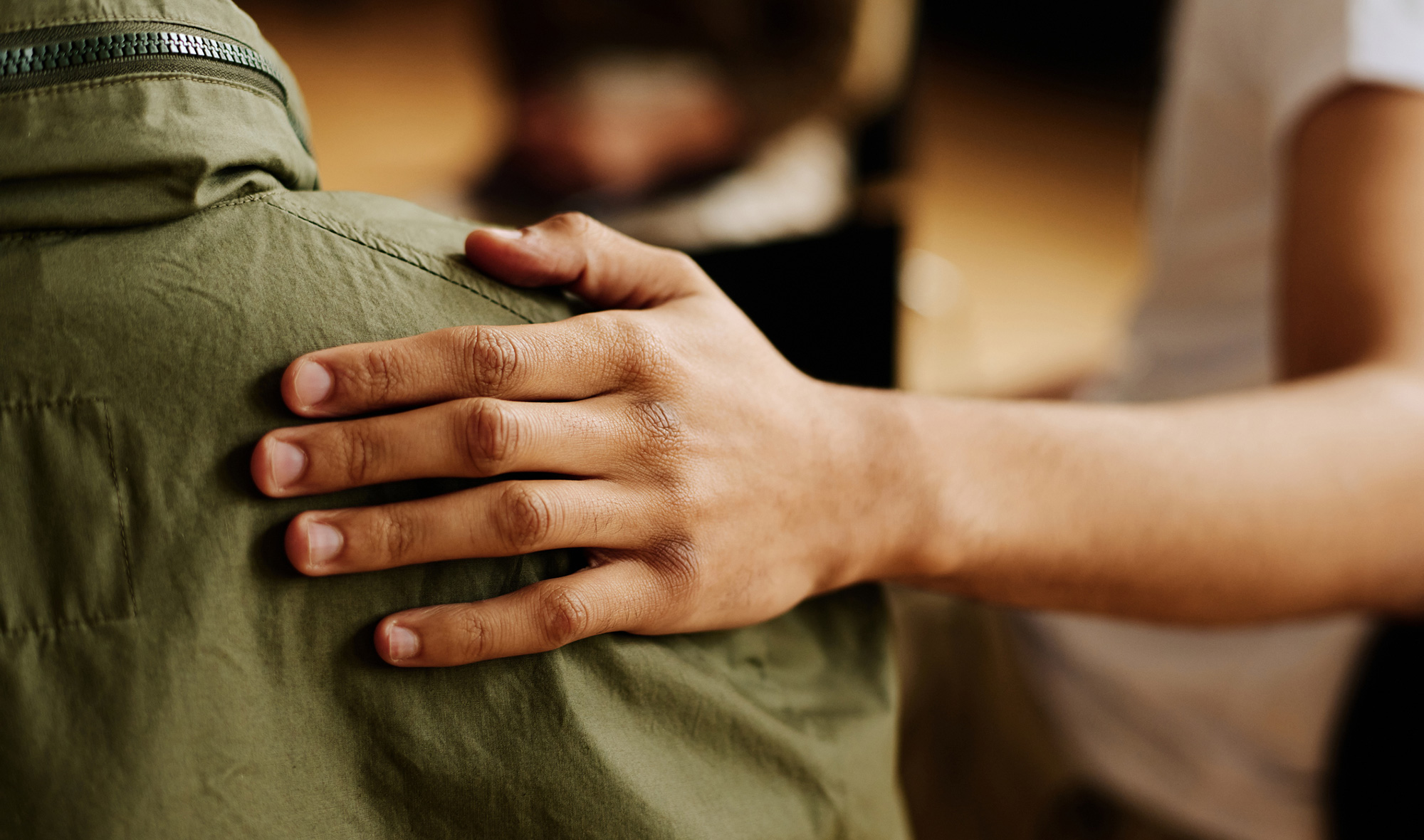“I’m a dad and I’m scared. When I say I’m a dad and I’m scared, I really mean: I’m a dad and I’m looking for answers – from the professionals, kids, mums, dads and other caregivers who have been there, holding each other’s hands to hell and back. Stand by me. Let’s take the journey together.”
The follow-up to his bestselling memoir All Blacks Don’t Cry, John Kirwan’s Stand By Me extends on his journey with anxiety and depression, but also shares his personal experiences as a father, one very much concerned about his own children and the welfare of all young people today.
Family Health Diary caught up for a Q & A with JK and his co-authors Elliot Bell and Kirsty Louden-Bell, while on a book-signing tour.
How can you tell if you have depression?
There are certain symptoms that are associated with depression including low or irritable mood, loss of interest, physical symptoms (eg changes in sleep, appetite, concentration and energy levels) and changes to thinking (eg hopelessness, guilt). The symptoms need to be persistent ie have been around for a while and occur across multiple settings and a key factor is the impact on your daily life ie so they stop you being involved or interested in things eg school, work, friends, sports, socializing – things you were previously involved with or enjoyed. www.thelowdown.co.nz and www.depression.org.nz both have questionnaires you can fill in online that will give you an indication as to whether you might have depression and then point you to further resources to assist in managing this.
I don’t feel down, rather panicky and anxious – what does this mean?
This could mean you are experiencing some form of anxiety – possibly an anxiety disorder. Anxiety and depression do often occur together as they did for JK or they can occur separately. Anxiety that is of most concern is anxiety that is out of proportion for the event and is having a disruptive effect on your life – ie stopping you from going places or doing things.
I have teenage children, how can I tell if something’s really wrong, or if they’re just going through what every teen goes through?
This is tricky and something many parents understandably worry about – there are so many changes that can occur with adolescence that sometimes depression or anxiety can be hard to spot initially. What we noted before about the degree of change is important – when the anxiety or low or irritable mood is (1) persistent (i.e. lasts months rather than a week or two), (2) pervasive (i.e. across lots of areas of their life), and (3) impacting on their life (i.e. affecting school, friendships, relationships at homes, sports activities) this suggests mental health concerns. As always prevention is better than cure, know your teen so you can notice if change does start to occur. Create an environment where it’s ok to talk about these things and name your concerns. You can’t go wrong asking and showing your concern – as long as you accompany it with a good chunk of listening as well!
Where can I find help for me or a loved one?
Resources available differ depending on where you live and what will be useful will depend on what is going on for your young person. Starting with your GP is a good first stop. Check with them what resources are available and would be suitable including therapy through their practice, mental health services, or NGO services. Also check the web – there’s a growing number of great online resources for young people and for families. For example www.mentalhealth.org.nz and www.youthline.co.nz have links to support services, a list of online therapy (e-therapy) options and sections on strategies to improve your wellbeing.
I suspect a friend has depression – and I’m not sure what to say, or what not to say?
It can feel really hard to know how best to support someone, in part because there are no magic words that will make things quickly better for them. The key is them knowing you are there for them and care about them. Name the things you have noticed (e.g. low mood, more withdrawn) and let them know you are concerned. Identify things that they could do and let them know you would support them to access these – e.g. look at a website together, go see the school guidance counsellor or the GP with them. Don’t belittle their experience – the degree of distress is unlikely to make logical sense and they can’t be argued or cheered out of it. Also remember that a key element of depression and anxiety is hopelessness and lack of motivation so they may initially reject your attempts to help and it may be difficult for them to talk about it. Be persistent, come back again. Stand by them! www.skylight.org.nz is a New Zealand site that has great tips about ways to have conversations when you are concerned about someone.
What causes depression, and who does it usually affect?
There are many different things that can contribute to depression including biological, psychological and environmental factors. Depression is an equal opportunity illness – it can affect anyone. It’s important to note though that just as there are things that can make someone more vulnerable to depression there are things that can protect us from it or help us through it – again biological, psychological and environmental things. A vital part of getting and staying well is identifying these protective factors or things that help us be strong.
I suspect I my have depression, but I’m reluctant to talk to my GP because I don’t want to be prescribed some mind-altering pills. What should I do?
GPs can assist you in identifying if you do have depression and help identify what your best treatment options might be. They can ‘prescribe’ talk therapies too and refer or direct you to resources in your area. If they do think medication could be be useful for you it can be helpful to think about the fact that depression may be ‘altering’ your mind and the medications role is to help get that back in balance. It’s important that you are up front with your GP about any concerns you might have, and what your full range of options might be.
Why do you think young teens need to be taught how to deal with stress? I never was.
Learning skills to manage stress is useful at any age. Adolescence is a time of significant change and learning stress management, problem solving and wellbeing skills can assist in negotiating that. Developing these skills at a young age can assist in enhancing wellbeing and minimising the impact of stressful events.
In Stand by Me, you mention the need to slow down when society is telling us to go fast. How can I “slow down”? How can I help my child to slow down?
I think the question provides a key answer – one of the ways you can help your child to slow down is by modelling slowing down for them. Model turning off your phone or the screen, model taking time for a walk or conversation over dinner, model noticing things in the moment by commenting on and appreciating them. It often doesn’t come naturally – we need to actively make space and time as a family for slower activities or no activities!
Many websites (such as those noted above) have exercises that can assist with slowing down such as relaxation and mindfulness activities, but you can go a long way but making sure that you take time out on a regular basis to recharge and look after yourself.
Stand By Me by John Kirwan is also available as an ebook.

















Community